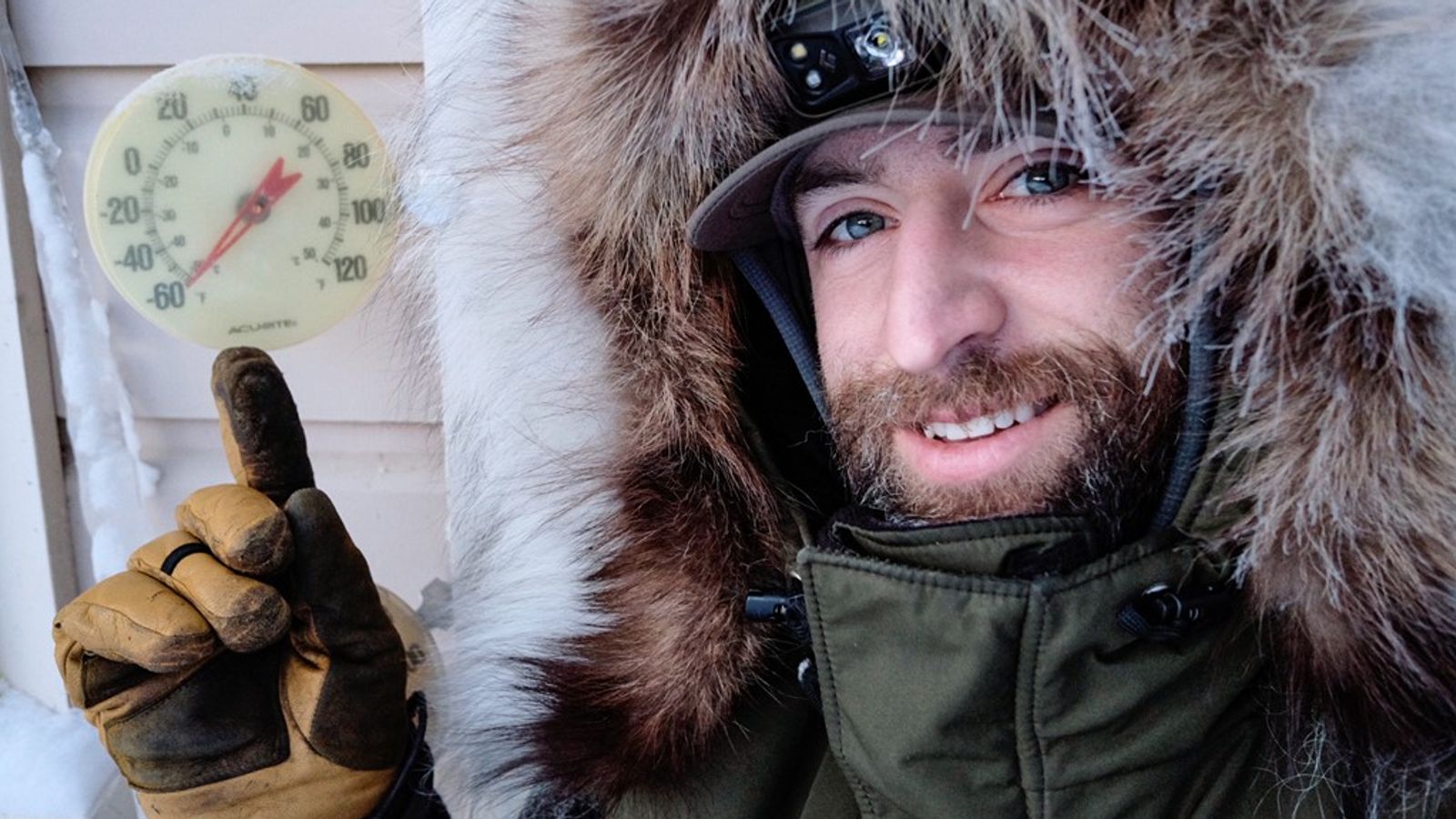Surviving -52C temperatures by heating a chainsaw with an open flame is not a situation familiar to many Britons.
But Arctic ranger Josh Spice has found himself at the mouth of a barrel stove desperately trying to heat the saw’s frozen blades to cut down enough trees to make it through the night in northern Alaska.
Patrolling at the gates of the Arctic National Park, where it snows at least eight months of the year and daylight dwindles to six hours a day in winter, Mr Spice is well-placed to offer some unique tips on how to cope with the cold.
With energy prices high and winter not letting up in the UK, we spoke to him, as well as Harley Droba, the mayor of International Falls, Minnesota, the town legally trademarked as the “Icebox of America”, about how to keep warm on the cheap.
UK weather latest: County closes all schools as heavy snow forecast
Makeshift ‘Arctic entry’
Having lived in Fairbanks, Alaska, for 16 years, Mr Spice stresses the importance of making sure heat does not get lost through the entrances and exits of a home.
At the end of January, temperatures plummeted to -41C in the suburbs, meaning there was a 63C difference between the air inside and outside Mr Spice’s cabin.
“When you open the door… oh my gosh, that flow of cold air is incredible. It is brutal,” he says.
A purpose-built, sealed porch known as an Arctic entry is one solution, but a budget alternative is hanging a woollen blanket over the doorway to create an additional buffer when opening and closing the door, he says.
Cling-film windows
Applying cling film to window edges with a hairdryer can help to seal out draughts, he says.
If airtight, the film effectively extends the window pane over any gaps.
“Even just the absolute slightest air leak that is imperceptible in the spring, summer or fall could feel like cold air being blown through a straw in the deep cold of winter,” he says.
This is crucial in Fairbanks because any condensation on the glass created by cold air meeting warmer air inside will freeze.
Wood-burning stove
“Having a wood stove is so critical because basically any other form of heat is providing warmth but there’s humidity to it,” Mr Spice says.
Lower humidity heat dries moisture accumulated on the skin more effectively, meaning heat does not escape from the body as easily.
This is particularly useful if you’ve just come in from the cold and have been sweating under layers of clothing, as well as in dry cold weather, which can draw moisture from the skin and into your clothes.
In the extreme temperatures of the Arctic Gates region, that moisture turns to frost, Mr Spice says.
“I have had sheets of ice on my face and my head to [the point] where I can barely even see.
“Not just frost, but actually thick ice sheets built up everywhere except my eyeballs.”
Mr Droba, the mayor of International Falls, echoed the ranger’s comments.
“We definitely celebrate the cold, we understand the cold, but when it gets super ridiculously cold we try to get close to that fireplace,” he said.
Read more:
How cold is too cold to go to work?
‘Lacklustre’ January for retailers with bad weather partly blamed
Buy bigger boots
“For folks that aren’t used to sub-zero temperatures, I highly suggest a good pair of boots,” says Mr Droba, whose town has recorded lows of -48C.
Lakes freeze each winter in International Falls to the point when cars can be driven on them, and so integral is the cold to the town’s identity that in 2008 it sued Fraser, Colorado, for using the title “Icebox of the Nation”.
Mr Spice agrees boots are key, advising people to buy a bigger pair so that insoles and large socks can be fitted in without feet being compressed so that the warming effect of normal blood flow is not restricted.
And don’t stop at boots, Mr Spice says:
• Wear liner gloves for dextrous tasks that require you to remove warmer mittens;
• Make sure not just to layer-up clothes, but to put clothes together that work well to trap in heat – including long woollen underwear.
The cat test
Cats will not put up with anything less than comfort, and Mr Spice says his is “like a canary in the coal mine” when it comes to identifying sources of cold.
Among them is the floor, which is difficult to keep warm regardless of how insulated your home is.
“If you have cats, like I do, you will notice that they definitely don’t prefer to be on the hard, uncovered floors in the wintertime.
“What is crazy noticeable is just having blankets or rugs down on the floor… you put a rug down and the whole room is noticeably warmer.”









